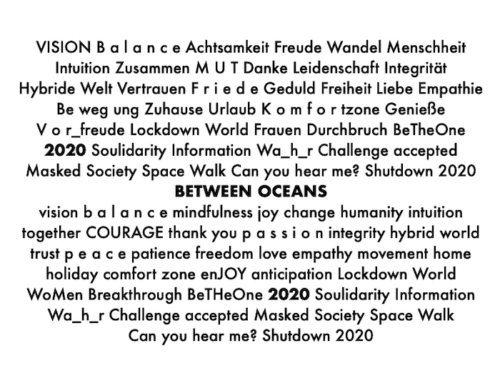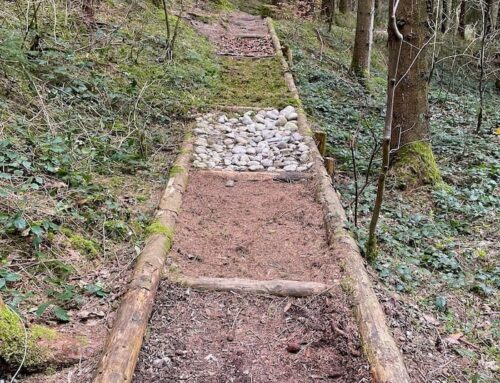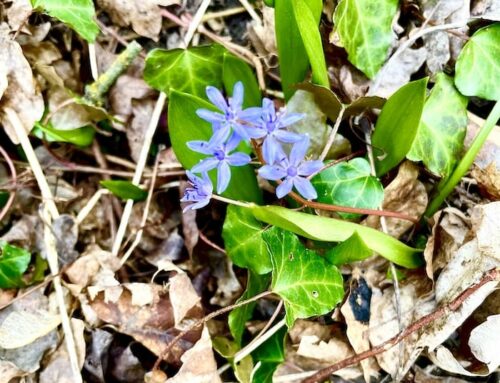„CHANGE IS THE END RESULT OF ALL TRUE LEARNING.” — Leo Buscaglia

Source: https://knowyourmeme.com/photos/1861746-webcomics, 9.1.23
I’ve just returned from a spontaneous weekend trip with my friend at Semmering, Austria. Conny and I wanted to go on holidays for a few days before the intense work weeks start again. Skiing by night, Spa in an organic hotel, fresh air and sun is what we had in mind before we went on the trip. Although we knew, though, that the snow situation in Austria was anything but pleasing, we wanted to find out on our own what it means to go “Skiing on an artificial snow carpet”.
With the protests of the climate activists in our minds we were left speechless when we saw the slope on site. It was a bizarre moment when we faced each other in the gondola after the first descent: it felt like as we had to justify ourselves and we almost felt bad. Mother Earth shows us in many, diverse places on this planet and in more visible ways than ever before that we can’t get ahead.
Only individual change can improve and save the whole. Facing and accepting it hurts. Skiing under these conditions was clouded, the guilty conscience quickly soothed, since the slopes prepared for the World Cup races in December ’22 due to lack of snow with artificial snow and chemicals were already there anyway and we could at least support the local gastronomy. While we were skiing down the artificial snow slopes under floodlights with mixed feelings overlooking one of the large historic hotel complexes at Semmering- which no longer belong to Austrian, but Ukrainian owners-we were thinking of the still raging war in Ukraine and of friends who were currently on vacation in the still existing Maldives … the bizarre seems to have become the ‘normal’ of the present time.
And yet they exist – the people who are full of determination, consistency, and commitment in their small steps to make the world a better place – Steve Jobs once said, “The people who are crazy enough to think they can change the world are the ones who do.”
JU’s 3 questions of the month are:
👉 How do you manage to find a satisfying and moderate balance in the tension between necessary change and dearly held comfort?
👉 Which change was the most difficult and formative one in your life?
👉 Do you have role models who motivate you approaching change?
👩🇦🇹🇨🇦🇮🇪 Barbara Breen-Wenninger
Barbara is my cousin and the youngest daughter of my godparents – I could see and gaze at her for the first time when she was born in December 1977.
Barbara has been a lecturer at the University of Vienna since 2005. She holds degrees in educational sciences and a combination of Political Science and English/American Studies from the University of Vienna. Today she is a workshop leader and coach at the Center for Teaching and Learning and ist furthermore a psychotherapist and supervisor in private practice.
In her free time, Barbara loves spending time with her family, as well as biking, yoga, and hiking in the woods.
I admire Barbara for being ambitious, successful, and intellectual, and that she is inherently open and sympatic.
👱🏼🇦🇹🇨🇭🇩🇪🇻🇪 Iris Weinberger
I first met Iris in November 2018 at the Weekly Long Run running group in preparation for our ‘first’ marathon.
Iris graduated from the University of Vienna with degrees in Medicine and Pharmacy and currently works as a doctor. She is a mother of 4 children between the ages of 16 and 21 and loves to spend her free time doing sports (especially running), traveling, coaching, and asset accumulation (including passive income, stock options).
I admire Iris for her mental strength and helpfulness, for her courage and being a role model.
👩🏻🦱🇦🇹🇨🇿 Michaela Willig
Michaela and I first met in a professional context in 2004/2005, first at Polycollage Vienna and later at the grammar school Sacré Coeur Rennweg, Vienna. Michaela succeeded in turning talent and passion into her profession whether as a foreign language teacher for German, communication trainer, professional speaker for radio and television (Austrian Broadcasting Corporation ORF-Landesstudio Burgenland, PULS 4, ATV), at wedding ceremonies or as a mental trainer for children and mothers. For 31 years Michaela has been working as an educator at the Sacré Coeur High School and will take over the management of the semi-boarding school Notre Dame de Sion in 1070 Vienna in February.
Michaela describes herself passionately as a ‘real Viennese’ and loves to spend her free time with her 13-year-old son, music and reading the newspaper.
I appreciate Michaela for her quick wit and directness, for her communication talent, her humor, and her love for life.
👩🇦🇹🇨🇦🇮🇪Barbara Breen-Wenninger
👉 How do you manage to find a satisfying and moderate balance in the tension between necessary change and dearly held comfort?
I succeed by trying to be in mindful connection with my inner self to allow navigating while drifting. What does that mean?
We humans find ourselves in a constant process of change, one moment replaces the previous one and is different and therefore changed, compared to the one before. Therefore, we can’t help but constantly change. I understand this as flow and as a permanent adaptation of every human being to equally changing environments. This usually happens subconsciously Only when the flow stalls, change and associated, often necessary, decisions move into the focus of attention.
👉 Which change was the most difficult and formative one in your life?
Looking at my life so far, I see a path that leads through different areas, sometimes comfortable and pleasantly soft, sometimes burdensome, and rocky. Regardless of the terrain and changing circumstances, I always experience the path as walkable. It is difficult to identify a specific change because every experienced event, however drastically it may be judged, has at the same time activated resources with which I could succeed in the required adaptation to changed circumstances. From this experience I have been able to develop a deep trust in the continuity of life and in my inner wisdom, which I deeply appreciate.
👉 Do you have role models who motivate you approaching change?
There are many people whose way of living inspires me. My attitude as a human being and psychotherapist makes me see each person as an expert of their own life. My guiding philosophy is based on the hypnotherapeutic assumption that every person has the necessary resources for shaping his or her life within him or herself and that these can be activated. It is not so much the why as the what for that motivates someone to change; it must make sense to the individual; change can’t be prescriptive.
I am inspired by Herman Hesse’s poem “Stufen” (“EN: Steps”), in which he states: “… Only he who is ready to journey forth can throw old habits off …”.
👱🏼🇦🇹🇨🇭🇩🇪🇻🇪Iris Weinberger
👉 How do you manage to find a satisfying and moderate balance in the tension between necessary change and dearly held comfort?
If I have come to the conclusion that a change is necessary to support me in my personal growth, then I perceive this change as something positive. The “WHY” is the first step and motivator for change. Establishing a morning routine since the fall of 2018 was a personal change for me: it was uncomfortable for me at first to get up a little earlier to do some gym exercises, but I knew what my goal was: I wanted to lose weight to participate in my first marathon. So, I “took it”, that means that this was the price I had to pay to become healthier in order to reach my goal, among other preparations for it. After a few months, I added a short 5-minute meditation, and I realized how good it was for me to get into a positive mood for the day. For almost a year now, this has increased to 60 minutes or more and I enjoy doing it every morning because I know the “WHY”. At the running group for “our first marathon” I met Judith, unfortunately she was then unable to do it in April 2019 due to injury.
👉 Which change was the most difficult and formative one in your life?
The most formative change for me took place more than 2 years ago. I decided to separate from my then husband after almost 22 years of marriage and four wonderful children together. This was difficult, among other reasons, because it was unimaginable for me to end this long-term relationship until then. I focused on the fact that a marriage must not fail and wanted to remain an “intact family” for our children as well. However, various circumstances, on the one hand my personal development and on the other hand the upbringing of my children, allowed me a “change of perspective”, so that I filed for divorce against the will of my ex-husband, moved out 6 months later with 3 of the 4 children and after one year I was legally and amicably divorced.
👉 Do you have role models who motivate you approaching change?
My personal “actively managed” change started exactly three years ago, when the topic “old-age poverty of women” concerned me a lot. I read and heard a lot about this topic (inspired by “Madame Moneypenny” Natascha Wegelin, then further explored by Jana Misar in 2021), which is interwoven with beliefs about money that are “implanted” at an early age. This led me to the topic of beliefs in other contexts as well, and I met people (albeit some virtually) who showed me new perspectives on life, such as Melani Tonia Evans, Rob Dial Jr, Tony Robbins, Louise Hay, Laura Seiler, Birgit Untermair, Bob Proctor, Mary Morrissey, Christina & Walter Hommelsheim, and Dr. Joe Dispenza and I read some books by him (“Your are the Placebo”, “Becoming supernatural”) and also Dr. Joseph Murphy (“The Power of your Subconscious Mind”), Napoleon Hill (“Think and Grow Rich”), Neale D. Walsh (“Conversations with God”), Dawson Church (“Mind to Matter”), Bruce Lipton (“The Biology of Belief”), and Maxwell Maltz (“Psycho-Cybernetics”). Recently I have started to share my knowledge and experience as a coach.
👩🏻🦱🇦🇹🇨🇿Michaela Willig
👉 How do you manage to find a satisfying and moderate balance in the tension between necessary change and dearly held comfort?
It’s the little things, I think, that literally everyone can afford. After I had deliberately stopped buying Nespresso capsules because of the aluminum, I had switched to plastic capsules, which was better, but not the best option. Today, I prepare my coffee again in my portafilter, the classic Italian espresso machine.
My son, a passionate trainspotter, has made travelling by train fun again and helped me saving a few kilos of CO2. I’m also slowly getting back into the habit of using public transport regularly. Basically, I think that it is cheap and quite fast – unfortunately, there are just soooo many people in one place.
👉 Which change was the most difficult and formative one in your life?
The most difficult change – because it simply doesn’t accept laziness – is the meticulous waste separation at my second home in southern Burgenland, Austria. There, literally everything is really separated. What is not allowed on the compost – and that’s quite a bit, should be a well-kept dunghill (!) and should be disposed in various bags and garbage cans. What then still has not found a place, is brought once a week to the collection point of the municipality. The good thing is that fees for waste disposal have not been increased for a good 15 years.
The most defining change is certainly the almost complete renunciation of meat. More and more often, vegan products are part of my dishes, which not only taste good, but are also good for me. To be honest, I didn’t give up eating meat for environmental reasons, but only after I saw a secretly video filmed by animal rights activists on the Internet.
👉 Do you have role models who motivate you approaching change?
Yes, young people.
First and foremost, my 13-year-old son, but also many of my students.
They are the ones who internalize and live the topic of “sustainability. Above all, they have the courage not to remain silent, but to point out mistakes to us adults.
I remember an afternoon in the half boarding school of the grammar school. We prepared pizza and ate together. Afterwards, I started to wrap up the leftovers to give them to the kids. One of the students asked me not to use so much aluminum foil, because it is bad for the environment.
I was embarrassed. And converted. Since then, I don’t use aluminum foil anymore.






Leave A Comment